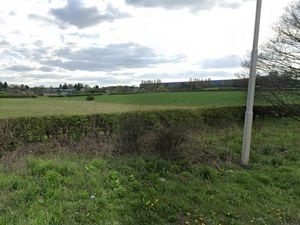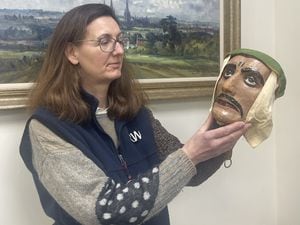The legacy of Wolves' famous win
It is regarded as the pinnacle of club football across the globe, with teams from across Europe battling it out for the crown of continental champions.

A platform for greats such as Alfredo Di Stefano, Eusebio and Zinedine Zidane, the European Cup – more recently rebranded as the multi-million pound Champions League – had much more humble beginnings before the polished juggernaut it is today.
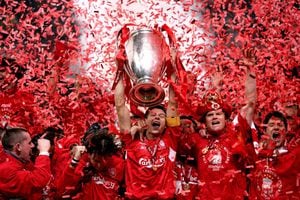
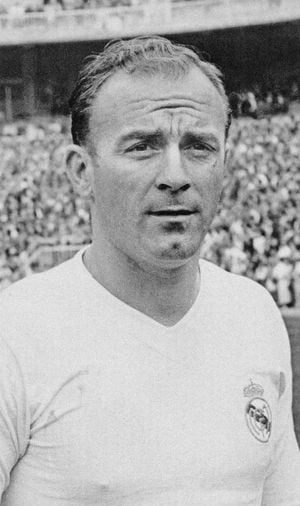
In fact, few will know that the prestigious competition that has made many a player into household names can trace its roots back to Molineux.
Wolves were taking on the giants of Europe in a series of floodlit, mid-week friendlies before the inception of the European Cup. And it was after their success against Ferenc Puskas' Honved that calls for such a tournament began to hot up.
Stan Cullis' comment in the immediate excitement of the 3-2 victory over the Hungarians that his team were 'champions of the world', a statement he later denied, was quoted in the national press.
The victory was not just seen as a triumph for Cullis and Wolverhampton, but payback for England who had been humiliated at Wembley by the Hungarians only months before.
Such victories against foreign opposition drew plaudits, and among those heaping praise on the club included five-time Olympic gold medal hero Jack Beresford, who congratulated Cullis on flying the flag for Britain.
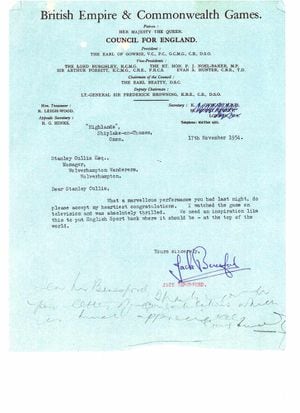
He sent a telegraph to the Wolves manager that said: "What a marvelous performance you had last night, do please accept my heartiest congratulations.
"I watched the game on television and I was absolutely thrilled. We need inspiration like this to put English sport back where it should be – at the top of the world."
A Mr C Kamperdyk also wrote to Cullis from Belgium expressing his delight at the club's performances.
He said: "Usually I am not given to expressions of joy when football teams win or lose a game, but in this instance I feel I must."
He added his voice was 'as hoarse as any Wolves fan' after listening to a previous fixture against Spartak Moscow on the radio.
Perhaps with plaudits coming from all quarters Cullis may be forgiven for calling his team 'world champions'.
As a result, his claim was picked up on by influential editor of the French sporting publication L'Equipe – Gabriel Hanot.
Reacting to Cullis' assertion, Hanot penned an article published in L'Equipe questioning the comment and stating Wolves had more to prove to be given such a title. The aim was now to introduce a European club championship.
Another continental observer, Willy Meisl, pointed out that only a few days earlier Honved had lost to Crvena Zvezda, who at the time were only seventh in the Yugoslav League and well adrift of the leaders Partizan.
Meisl also passed comment on the Molineuz surface, saying: "No-one called Partizan champions of the world. Dare I also remark in passing that quagmires are not usually considered the best pitches on which world championships are to be decided, not even neutral quagmires."
The European Cup, according to Cullis' biographer Jim Holden, had been 'a vision Hanot had proclaimed before the Second World War', but it was Cullis' boast which was the spark needed to translate the idea into reality.
There was already the smaller Mitropa Cup, which incorporated teams from the middle European nations like Austria and Czechoslovakia, but Hanot was now convinced the time was right for a competition to embrace the entire continent. He published a blueprint for a European club tournament in L'Equipe later that week in direct response to the Wolves and Honved match.
The plan was for each country to nominate a team, preferably their league champions, to compete, and for matches to be played midweek on a home and away league basis.
The next week, in January 1955, in an open letter to L'Equipe backing the plan and saying it had the full support of the Real Madrid club was the then-club chairman Santiago Bernabeu. Eighteen invitations were sent out to take part in the competition, to start in the autumn.
Chelsea, as the English team at that time leading the First Division, were invited rather than Wolves, who had won the championship the previous season. Chelsea went on to win the division that year in any case.
Despite initial scepticism arguing the competition would need to be officially sanctioned, the competition soon received the backing of FIFA and the fledgling UEFA started in September 1955 – barely nine months after Wolves had defeated Honved.
Pressurised
Sadly, Chelsea were pressurised to withdraw by the Football League with the league president concerned midweek European ties would have a detrimental effect on Saturday attendances in Division One.
Twelve months later, Matt Busby accepted the invitation for his Manchester United 'Busby Babes' – including Dudley-born Duncan Edwards – to play in the 1956-57 European Cup as the new champions of England. Wolves first entered the competition itself as champions in 1958 but were knocked out by German side Schalke over two legs.
But the season after they reached the quarter finals of the competition, beating Vorwärts Berlin and Red Star Belgrade on the way.
It sparked imaginations that the club could be crowned with European glory, which would have been a first for any British side as the tournament had so far been dominated by sides from southern Europe.
But Wanderers were dumped out by the great Barcelona 9-2 over two legs – a humbling defeat for the men from Molineux.
It was to be more than 20 years later, in 1982, when the European Cup, nicknamed 'old big ears' for its large handles, would find its way to the West Midlands.
While those in Wolverhampton had dreamed of seeing old gold and black ribbons on the trophy it was the claret and blue of their neighbours Aston Villa that were draped over the cup.
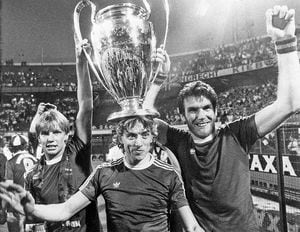
Their 1-0 victory over German giants Bayern Munich in Rotterdam remains the only time the European Cup has made its way to this part of the Midlands.
The closest it had previously been was Brian Clough's Nottingham Forest, that had won back-to-back European titles in 1979 and 1980 for the East Midlanders.
There is more recent Villa claim on the famous trophy too. If there is anyone who knows the sentiment at which the Champions League is held then it's current boss Paul Lambert.
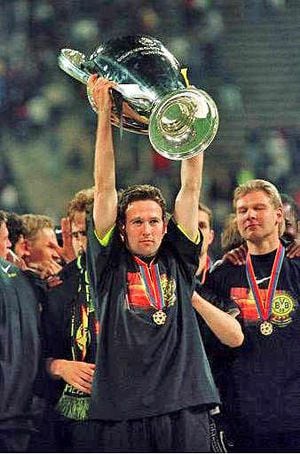
In 1997, he won the coveted prize with Borussia Dortmund when they beat Juventus 3-1. He is still regarded as a cult hero by fans of the German side as he was given the defensive midlfield role known more commonly as 'The Makelele' after former France and Chelsea battler Claude Makelele, and famously marked Zidane out of the game.
When Dortmund reached the final in 2013 Lambert was a guest of honour of the club.
Back to the 1950s, and Wolves had also continued with their prestige friendlies home and away. Despite a lack of European Cup action they were still regarded as trailblazers for European club competition.
Moscow Dynamo visited Molineux on November 9, 1955, with the legendary Lev Yashin clad in his famous all-black strip, one of the most celebrated footballers on Earth, as their goalkeeper.
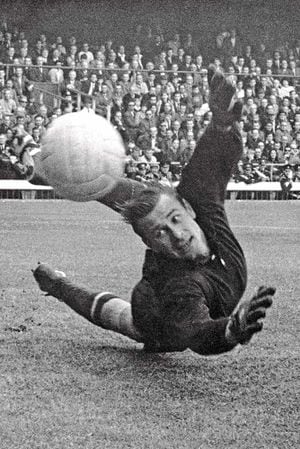
Within 15 minutes he was picking the ball back out of his own net after a goal by Bill Slater. Jimmy Mullen scored a second in the 49th minute and although Ilyin pulled one back for the Russians, Wolves held on for another famous victory with a potential equaliser ruled out for offside by referee Arthur Ellis.
Cullis and Wolves had visited Moscow months earlier in August 1955 for two matches against Dynamo and Spartak. Both were lost.
Against Dynamo they were 3-0 down at half-time with Dennis Wilshaw scoring twice in the second half to set up a tight finish. Journalist Roy Peskett wrote at the time: "If Wolves are not the best team in the world there can be no greater fighters."
In modern laws of the game Wolves would have won the two-legged fixture withg Dynamo on away goals. Slater recalled years later: "There was a series of matches against Yashin. What a goalkeeper and character he was. It was a privilege to have scored against him."
Real Madrid, who won the first two European Cups and would go onto win a further three in a row, hosted Wolves in the autumn of 1957.
Wolves emerged from in front of a 110,000 crowd with a very credible 2-2 draw at what was then Real's Chamartin Stadium. Bobby Mason and Jimmy Mullen scored for the Wanderers.
Mason said: "The crowd lit candles in mourning for their team as they had never been beaten or drawn at home to foreign opposition."
Wolves players felt that both Madrid's goals had been offside, with Norman Deeley also hitting the bar with a fierce shot in the last few minutes of the game.
Cullis was delighted.
He thought Alfredo Di Stefano had the best balance of any footballer in the world at the time and now would come the second test, facing the continental champions under the Molineux floodlights. On Thursday, October 17, 1957, in front of a packed stadium and with Di Stefano again heading the Madrid attack, Wolves triumphed again – 3-2.
In effect they won 5-4 on aggregate over two legs against a team that was to win the European Cup five times in succession.
Biographer Holden said: "Even more than the victory against Honved perhaps this was the finest single achievement of the Iron Manager."
Although a Cullis team never won the European Cup, he later explained: "My ambition as manager was to win the First Division championship, not the European Cup. Until I became manager Wolves had never won the league. We won it in 1954 and again four years later by playing attacking football, which was my whole philosophy.
"In the late 1950s we scored more than 100 goals for four years in succession. Of course, that made us vulnerable at the back, but that was our style. To win the European Cup required a different style. It required players to go against their natural game and this I was not prepared to do."


